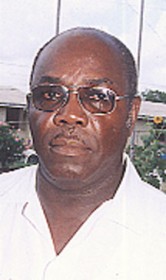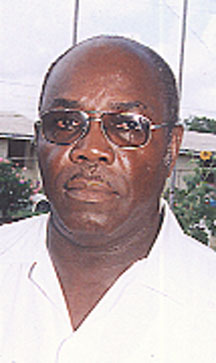With the life of the Public Service Commission coming to an end, the High Court is now awaiting word from former Chairman Carvil Duncan on whether he will opt to see out his challenge to his suspension by President David Granger.
Duncan was a no-show for a scheduled hearing on Wednesday before Justice Brassington Reynolds and one of his attorneys, Rajindra Jaigobin, could not account for his whereabouts, noting that several calls to his phone had gone unanswered.
Jaigobin said he was yet to seek instructions from Duncan on whether he would still pursue the matter, given that the life of the commission had ended.
Counsel then requested an adjournment, which did not go well with Solicitor General Kim Kyte-John, who said he should have known what course his client would be taking ahead of the hearing.

Kyte-John argued that the matter should no longer be engaging the attention of the court, since the life of its subject-matter no longer exists. To adjourn the matter, she advanced, would be a waste of judicial time. “We should have known this before,” the Solicitor General stressed, but added that if the court was so minded to grant an adjournment, then it should be a short date for reports.
It was at this point, however, that Justice Reynolds enquired from the attorneys whether there may be any academic or jurisprudential value in pursuing the legal issues in the matter, even if the applicant decides to discontinue his challenge.
Agreeing with the judge, attorney Robert Ramcharran, who represents a tribunal that has been set up to consider whether Duncan should have been removed from the post, said he believed that there was value to be garnered from ventilating the legal issues in the case, which can contribute to the development of local jurisprudence. He said that all the pleadings in the case have been submitted and since the legal issues to be determined are serious, the matter should be heard, and a ruling made.
The judge noted that going forward, the court would be inclined to examine and make a determination not on the factual issues in the case, should Duncan decide to abort his challenge, but the legal ones, since it may be of academic and jurisprudential value.
Kyte-John noted that at the last hearing of the case, when it was still before Justice Franklyn Holder, testimonies on the factual issue of whether Duncan had been given “notice” of the tribunal were being heard by the court. She contended that the legal issues in the case cannot be dealt with in isolation from the factual ones, because of how interrelated they would be, and explained that the latter touches and concerns the former.
According to her, the legal issues to be determined will have direct bearing on what law is to be applied to the specific facts of the case.
The judge noted that while the court is inclined to make determinations on legal issues and is not minded to rehash the entire case if it doesn’t have to, the course the applicant wishes to take will determine the way forward.
In the circumstances, Justice Reynolds adjourned the matter to October 23, when it is expected that Duncan would be present to say what he wishes to do.






